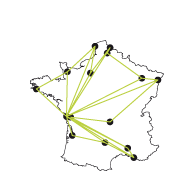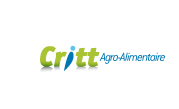
Coordination
Partners
Objectives
Through the pooling of expertise and technical resources, the ACTIA NUTRIPREVIUS joint technological network (2014-2018) provides consumers, companies, and the authorities with concrete answers on:
- the determination of the nutritional content of food products;
- the evaluation of their nutritional quality;
- the improvement and control of their nutritional quality.
This joint technological network started its five-year programme in January 2014. It follows on from the Actia Nutriprevius joint technological network, accredited for the 2007-2013 period.
Actions
The joint technological network's programme is divided into three themes and one cross-cutting area.
Determination of nutritional values
To better understand the nutritional composition of products and prepare nutritional declarations that are compliant with the Inco regulations:
- to roll out and master the calculation-based approach;
- to make the analytical approach more reliable;
- to combine these two approaches in order to optimise the cost and the quality of results;
- to identify the variation factors and their impact on tolerances for nutritional labelling
Evaluation of nutritional quality
To identify the nutritional strengths and weaknesses of products in order to valoriserxxx and improve them:
- to experiment with nutritional profiling systems;
- to improve and create nutritional quality indicators that are suited to the products and their constraints.
The improvement and control of nutritional quality
To improve food supply, in support of public health policies: to use and roll out tools for nutritional reformulation.
To control nutritional content and guarantee accurate information for consumers: apply and improve the approach for analysing and controlling nutritional quality.
Knowledge transfer
All the knowledge acquired (diagnostic tools, methods of analysis, etc.) is communicated and disseminated to all food industry players concerned by nutrition and health, in the form of practical guides (Nutritional quality, a practical guide from diagnostic to control, Actia 2012), seminars (food safety days, etc.), information and training days, and publications in technical and scientific reviews.





